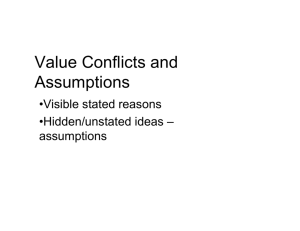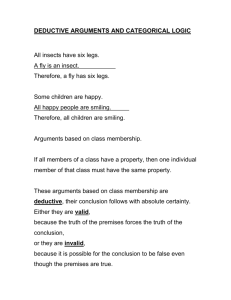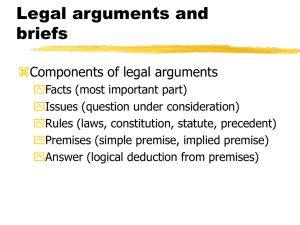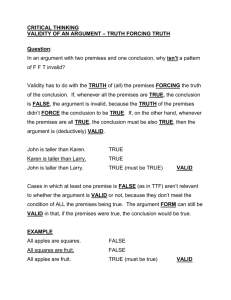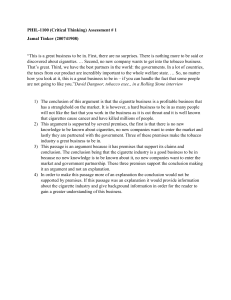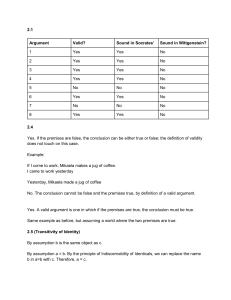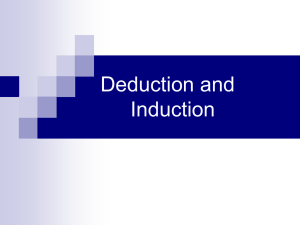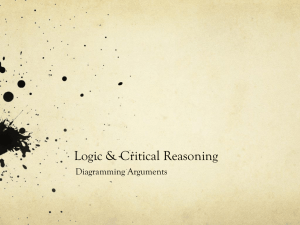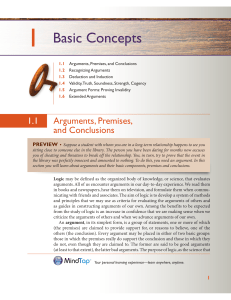PHIL 60 SYMBOLIC LOGIC I CLASSIFYING AND EVALUATING ARGUMENTS GOOD
advertisement
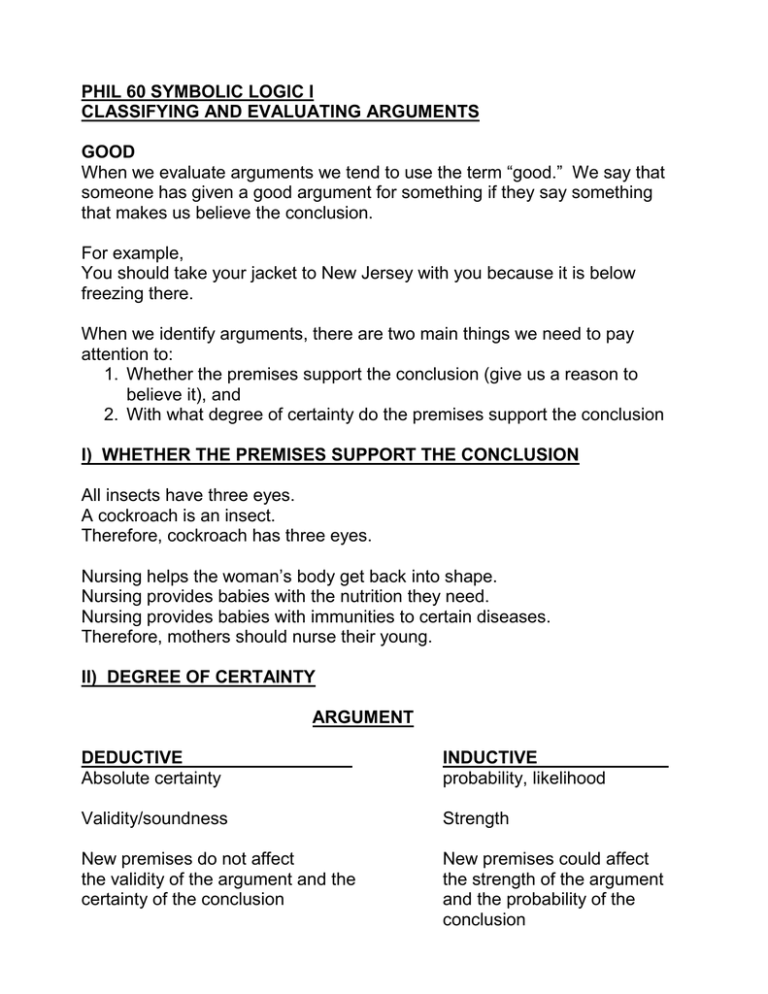
PHIL 60 SYMBOLIC LOGIC I CLASSIFYING AND EVALUATING ARGUMENTS GOOD When we evaluate arguments we tend to use the term “good.” We say that someone has given a good argument for something if they say something that makes us believe the conclusion. For example, You should take your jacket to New Jersey with you because it is below freezing there. When we identify arguments, there are two main things we need to pay attention to: 1. Whether the premises support the conclusion (give us a reason to believe it), and 2. With what degree of certainty do the premises support the conclusion I) WHETHER THE PREMISES SUPPORT THE CONCLUSION All insects have three eyes. A cockroach is an insect. Therefore, cockroach has three eyes. Nursing helps the woman’s body get back into shape. Nursing provides babies with the nutrition they need. Nursing provides babies with immunities to certain diseases. Therefore, mothers should nurse their young. II) DEGREE OF CERTAINTY ARGUMENT DEDUCTIVE Absolute certainty INDUCTIVE probability, likelihood Validity/soundness Strength New premises do not affect the validity of the argument and the certainty of the conclusion New premises could affect the strength of the argument and the probability of the conclusion

